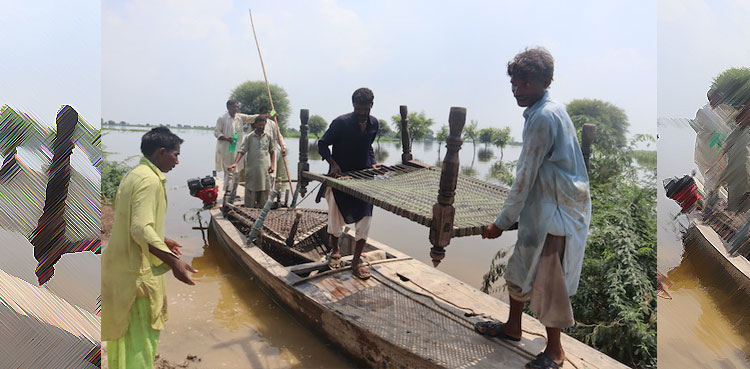
GENEVA: The international community must help Pakistan recover from last year’s devastating floods and boost climate resilience, or the country will be locked in misery, the head of the UN development agency told AFP.
Pakistan is still reeling from the unprecedented monsoon floods unleashed last August which killed more than 1,700 people and affected some 33 million others.
To meet the acute needs, the country and the United Nations will on Monday co-host an international conference in Geneva seeking billions of dollars in donor pledges and other support towards a long-term recovery and resilience plan.
“The sheer destruction of these floods, the human suffering, the economic cost… turns these floods truly into a cataclysmic event,” said United Nations Development Programme administrator Achim Steiner, whose agency is helping organise the conference.
In an interview ahead of the event, he said the situation remained dire months after the monsoon rains ended.
NEEDS MASSIVE
“The waters may have receded, but the impacts are still there,” Steiner said.
“There is a massive reconstruction and rehabilitation effort that needs to be undertaken.”
Read more: Climate conference: PM Shehbaz Sharif leaves for Geneva
Millions of people remain displaced, and those who have be able to go back home are often returning to damaged or destroyed homes and mud-covered fields that cannot be planted.
Food prices have soared, and the number of people facing food insecurity had doubled to 14.6 million, according to UN figures.
The World Bank has estimated that up to nine million more people could be dragged into poverty as a result of the flooding.
Monday s one-day conference, which will open with speeches by Pakistan Prime Minister Shehbaz Sharif and UN Secretary-General Antonio Guterres, aims to secure commitments of support towards the country s $16-billion recovery and reconstruction plan.
Pakistan s government aims to cover half that amount with “domestic resources”, including through public-private partnerships, but is looking to the international community to cover the rest.
Steiner insisted the international community had a moral duty to help Pakistan recover from a catastrophe clearly amplified by climate change.
The country is responsible for less than one percent of global greenhouse gas emissions but is one of the most vulnerable nations to extreme weather caused by global warming.
VICTIM
Pakistan “is essentially a victim of a world that is not acting fast enough on the challenge of climate change”, Steiner said.
The enormous shocks Pakistan is facing, he said, “require the international community to step up in partnership”.
Otherwise, the country will face “an extraordinary amount of misery and suffering” in the long term, he warned.
Pakistan “will essentially remain locked into a situation where it cannot recover, and for years, maybe for decades will lag behind… its potential”.
As the world reels from multiple overlapping crises, from the Covid pandemic to the war in Ukraine and resulting food and energy price hikes, the $8 billion Pakistan is seeking might sound like a big ask.
But Steiner said the figure likely “underestimates not only the cost of what is needed, but also the potential of international support”.
He pointed out that the short-lived but dramatic and deadly floods around Ahr in Germany in 2021 ultimately cost around 33 billion euros ($35 billion).
By comparison, Pakistan saw large swaths of its territory flooded for months, with the water yet to recede in some areas in the south, leaving an unfathomable trail of destruction.
“No country in the world could really recover from this without the solidarity and support of others,” Steiner said.
Helping a climate-vulnerable country like Pakistan to rebuild in a more resilient fashion is the only way to limit the damage as global warming worsens, he said.
“I think the world has begun to realise that climate change has arrived,” he said.
“We will have to not only rethink the way our economies are run, but also how we deal with the catastrophic and almost unprecedented scale of these impacts in the years to come.”
from International News Today - Breaking News, US News, World News https://ift.tt/VgjfSm6
via IFTTT

0 Comments